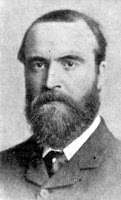T is for Twenty-Fourth of April: Census Day

Ireland's Census Day is April 24. To mark the occasion, here are some lyrics I wrote (to the melody of Annie's Song by John Denver) The CENSUS TAKER’S LAMENT You fill up my census with your four-person household, And the baby you gave up, to the nuns out of shame. Because rents are so high now, the kids watch you grow older, From the sofa beside you as you all watch the game Come on and tell us, about your hip operation: When you fell in October, were you in any pain? Did that wait on the trolley in your housecoat feel colder than the pain in your femur as you walk in the rain? After selling the Yaris, can you limp to the station? Are you getting up early, to catch the dawn train? Like the crippling interest on your defaulting mortgage, You fill up my census, with the thoughts of your pain!





